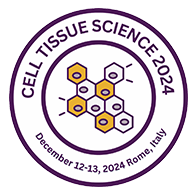Anti-Aging Medicine
Anti-Aging is the process or method that are intended to prevent or limit the process of becoming old. Our bodies are made of cells, and aging occurs once there is cell death. As an infant, child and young adult, our body’s cells are robust, resilient and can create new cells. As the years pass by, our body’s ability to generate new cells diminishes and finally cell death happens, and therefore the aging process ensues. Enduring youth might be attained if aging could be stopped at a youthful age, but it seems unlikely that the damage to organs, tissues, cells and molecules known as aging can be stopped completely by replacing or repairing those damaged organs, tissues, cells and even molecules seems like a better strategy. These strategies can restore function to old organisms or can even rejuvenate
- Ageing Demographics
- Rejuvenation
- Ageing Disorders
- Genetics Of Ageing and Life Span
- External environmental agents
- Basic and Translational aspects of aging
- Ageing Technology
- Cognitive Ageing
Related Conference of Anti-Aging Medicine
21th World Congress on Tissue Engineering Regenerative Medicine and Stem Cell Research
16th International Conference on Human Genetics and Genetic Diseases
19th International Conference on Genomics & Pharmacogenomics
Anti-Aging Medicine Conference Speakers
Recommended Sessions
- Advancement in Cancer Treatments
- Anti-Aging Medicine
- Artificial Organs
- Biobanking
- Biomaterial and Bioengineering
- Cancer Cell Biology
- Cell Biology
- Cellular and Gene Therapy
- Epigenetics and Epigenome
- Ethical Issues and Marketing Status Around the Globe
- Precision Medicine
- Regenerative Medicine
- Stem Cells and its Applications
- Tissue Culture and Preservation
- Tissue Engineering
- Tissue Repair and Regeneration
Related Journals
Are you interested in
- 3D Bioprinting, Organ Fabrication & Bioartificial Tissues - Stem Cell 2026 (Netherlands)
- Aging Biology, Longevity Science & Cellular Rejuvenation - Stem Cell 2026 (Netherlands)
- Artificial Intelligence and Computational Biology in Regenerative Medicine - Stemgen 2026 (Japan)
- Bioinformatics, AI Models & Predictive Regeneration - Stem Cell 2026 (Netherlands)
- Biomaterials and Nanotechnology in Regenerative Medicine - Stemgen 2026 (Japan)
- Cancer Stem Cells & Targeted Therapeutics - Stem Cell 2026 (Netherlands)
- Cancer Stem Cells and Oncology - Stemgen 2026 (Japan)
- Cardiac, Vascular & Musculoskeletal Regeneration - Stem Cell 2026 (Netherlands)
- Cardiovascular Regeneration - Stemgen 2026 (Japan)
- Clinical Translation of Stem Cell Therapies - Stem Cell 2026 (Netherlands)
- Clinical Trials and Translational Stem Cell Research - Stemgen 2026 (Japan)
- Commercialization, Biobanking & Industry Innovations - Stem Cell 2026 (Netherlands)
- Ethical, Legal, and Social Implications in Stem Cell Research - Stemgen 2026 (Japan)
- Ethical, Regulatory & Quality Control Frameworks - Stem Cell 2026 (Netherlands)
- Exosomes, Extracellular Vesicles & Cell-Free Therapeutics - Stem Cell 2026 (Netherlands)
- Future Trends: Organoids, Bioengineering, and Next-Generation Therapies - Stemgen 2026 (Japan)
- Gene Editing and CRISPR Technologies - Stemgen 2026 (Japan)
- Gene Editing, CRISPR Therapies & Regenerative Genomics - Stem Cell 2026 (Netherlands)
- Induced Pluripotent Stem Cells (iPSCs) and Reprogramming - Stemgen 2026 (Japan)
- Mesenchymal Stem Cells (MSCs) in Therapy - Stemgen 2026 (Japan)
- Regeneration in Neurodegenerative & Spinal Cord Disorders - Stem Cell 2026 (Netherlands)
- Regenerative Approaches in Diabetes & Metabolic Disorders - Stem Cell 2026 (Netherlands)
- Regenerative Dentistry and Craniofacial Applications - Stemgen 2026 (Japan)
- Regenerative Immunology & Immune Modulation - Stem Cell 2026 (Netherlands)
- Regenerative Medicine and Tissue Engineering - Stemgen 2026 (Japan)
- Stem Cell Banking and Cryopreservation - Stemgen 2026 (Japan)
- Stem Cell Biology and Cellular Mechanisms - Stemgen 2026 (Japan)
- Stem Cell Engineering & Cellular Reprogramming - Stem Cell 2026 (Netherlands)
- Stem Cells in Neurological and Neurodegenerative Disorders - Stemgen 2026 (Japan)
- Tissue Engineering, Biomaterials & Smart Scaffolds - Stem Cell 2026 (Netherlands)

